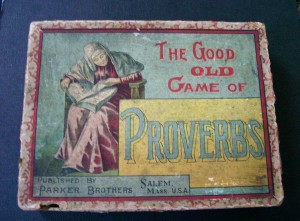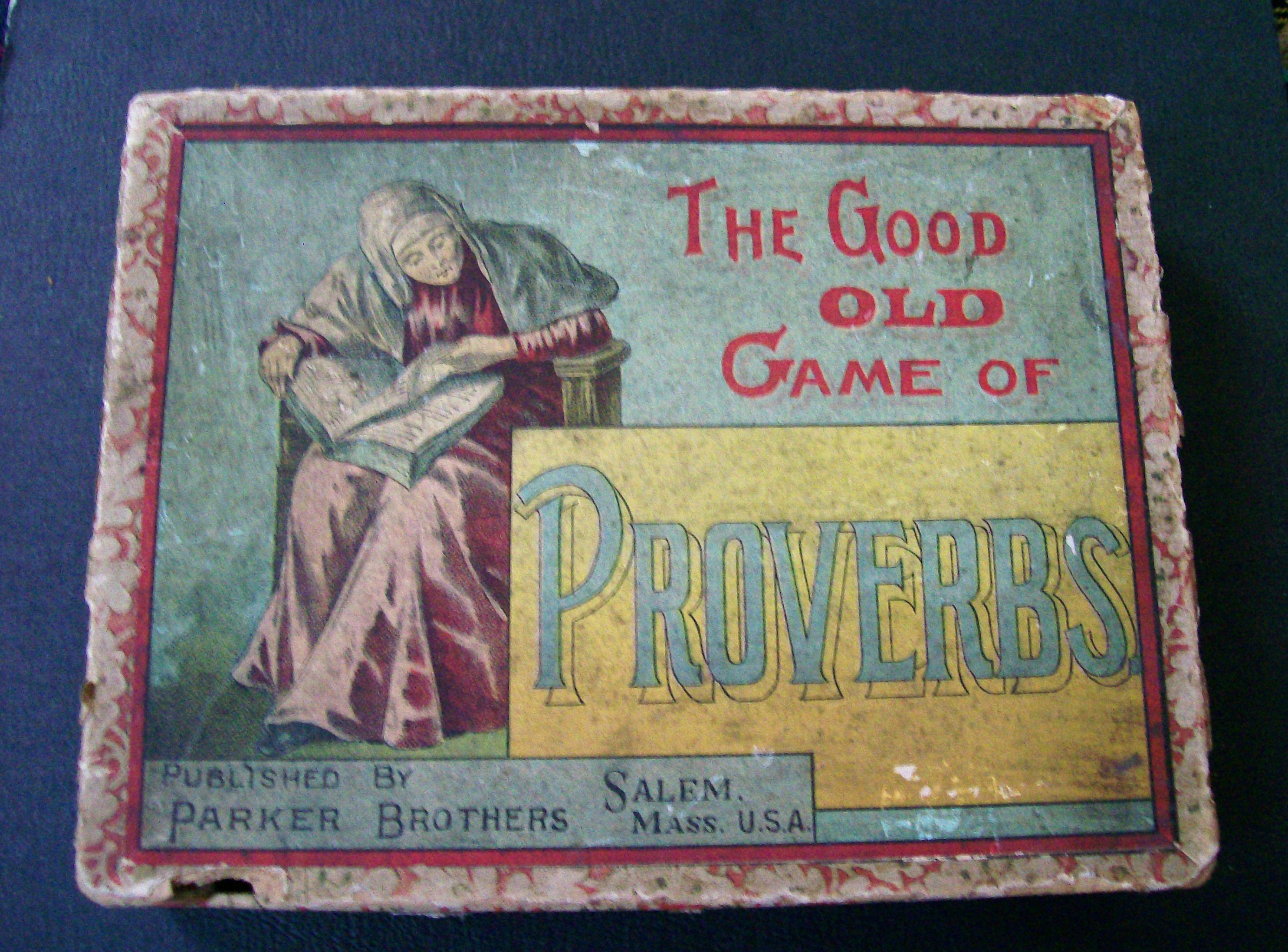Named ‘The Good Old Game of Proverbs’ in 1893, this game by Parker Brothers could now be called the ‘good OLDER game of Proverbs’ today.
 Each of the 96 cards, housed within the small game box of Proverbs, includes a well known saying for the time period. Some are still widely remembered and used today; such as, “The early bird catches the worm” or “Better later then never”. Others, like, “What is written remains” or “Love laughs at locksmiths”, have lost their popularity . Players of the game (or actually winners of the game) would have needed to know and been able to recite the many Proverbs of their time.
Each of the 96 cards, housed within the small game box of Proverbs, includes a well known saying for the time period. Some are still widely remembered and used today; such as, “The early bird catches the worm” or “Better later then never”. Others, like, “What is written remains” or “Love laughs at locksmiths”, have lost their popularity . Players of the game (or actually winners of the game) would have needed to know and been able to recite the many Proverbs of their time.
There are different methods of play included in the directions for the game.
The first method requires one person to leave the room while all other players remain. A proverb from the box is then picked and one word is given to each player in order. If there are more words in the proverb than players, a player may be given more than one word.
Upon the return to the room of the player who left, he is informed of who has the first word of the proverb and who has the last. It is then up to the player to choose a person to read his word and try to guess the proverb with as little hints(words) as possible. The final person of whom the player guessed the proverb by is then the person who leaves the room for the next round of play.

The second method has all cards dealt one at a time to all players. Before the game begins players must decide whether only the first word or first and last words of the proverb will be read. Whichever is chosen by players, the person to the left of the dealer reads his word(s) of one of his cards first.
If the player to his left is able to say the proverb, he receives the card and it is then his turn. If he cannot, the next player tries to give the correct proverb. Moving around the player’s circle, whoever is able to correctly provide the proverb takes the card and then reads one of his cards. If no one is able to identify the proverb, then the starting player keeps the card and reads another.
When all cards are read, the player with the most cards wins.
There are other methods of play also.
- Shouting Proverbs has all players shout at once the word in which he is given in the proverb. A player then tries to repeat the proverb. The directions say the strategy for this method of play is for a player to only listen to one person and try to guess it that way.
- Acting Proverbs has players choose sides and then they act the ‘proverb’ together. If the other side can guess it, they receive a point.
- Parallels is another team playing variety of Proverbs. Instead of acting out, players tell a story which would relate the proverb to the other team of players.
The final method of play described in the directions is Split Proverbs. Sitting in a circle, the first player says only the first half of a proverb and then throws a handkerchief to another player. This player must then say the last half of a different proverb. The humor found by creating ridiculous proverbs allows all players to win in this method of game play.
Collecting old games is a great way to understand and learn the simple enjoyment found in times past.

Ontesol | Accredited TESOL Courses | TEYL Certificate